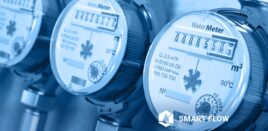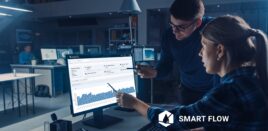

What is it and what are the benefits?
Smart Water Technology

Lack of efficient water usage
Water, an essential resource for drinking, domestic use, agriculture, and recreation, plays a pivotal role in public health and economic development worldwide. To thrive economically and bridge inequality gaps, it’s crucial to enhance the global water supply, sanitation, and resource management. Water systems have evolved over generations with technological advancements continually reshaping distribution and treatment methods.
What is smart water technology?
The latest advancements in water technology leverage real-time data transmission, heralding a new era of intelligent water systems. Smart water technology encompasses the integration of hardware, software, and analytics to automate, collect data, and analyze information, aiding water supply and wastewater facilities in addressing various challenges.
These technologies tackle issues such as leak detection, water efficiency, energy conservation, and water quality improvement. By promoting efficient technology use and informed decision-making, smart water technology offers a framework for enhanced water management.
Who benefits from smart water technology?
Ideally, everyone stands to gain from smart water technology. Utilities can optimize their resources, directing funds toward critical areas. Manufacturers can innovate and tailor technologies based on data-driven insights. Engineers can better serve their clients, while residents in smart water networks gain insights into their water consumption patterns.
Crucially, smart water technology can address the needs of vulnerable communities, enhancing water equity, affordability, and access. By identifying consumption patterns, pipeline leaks, and operational inefficiencies, this technology can help underserved areas access clean and cost-effective water.
Challenges in current water management
Water distribution from reservoirs to consumers has grown increasingly complex. Approximately a quarter of usable water is lost due to leaky infrastructure, filtration issues, and evaporation, posing a major challenge for water providers. Aging pipelines, some exceeding 50 years in service, are prone to cracks and leaks that contribute to water loss and quality concerns. Climate change further strains water supply systems with changing precipitation patterns and more frequent flood-producing storms. Meeting growing water demands becomes a challenge as populations expand and every drop lost due to inefficiency is cause for concern.
The benefits of smart water technology
Efficient Water Management: Non-revenue water costs the industry billions annually. Real-time data alerts organizations to volume fluctuations, enabling them to address issues promptly.
Real-Time Water Usage and Analytics: Smart water meters provide end-users with real-time visibility into their water consumption, with remote control capabilities for peace of mind.
Property Protection: These technologies act as 24/7 alarms against plumbing leaks, offering remote shut-off capabilities to safeguard assets.
ESG – Carbon Footprint: As water becomes scarcer, businesses are increasingly pledging to manage water resources responsibly. Smart water technologies help reduce carbon footprints by curbing water wastage and energy consumption.
Implementing smart water technology
The landscape of water management technology is continually evolving. Commercial entities looking to conserve water and reduce costs must move beyond traditional methods like analyzing water bills. Selecting the right smart water technology is crucial as simply having a logger or AMR on utility meters may not resolve all water-related issues.
About Superfy and SMART FLOW
As part of our product tier to combat a world of waste, Superfy and SMARTFLOW provide revolutionary smart water meter technology that empowers end users with real-time water monitoring and visibility of water usage. Unlike AMR, Superfy and SMARTFLOW utilizes artificial intelligence to provide total control and insights, enabling businesses to monitor their water usage 24/7 in real time. Research indicates that our clients have achieved a minimum 30% reduction in water consumption, aligning with their sustainability goals.


